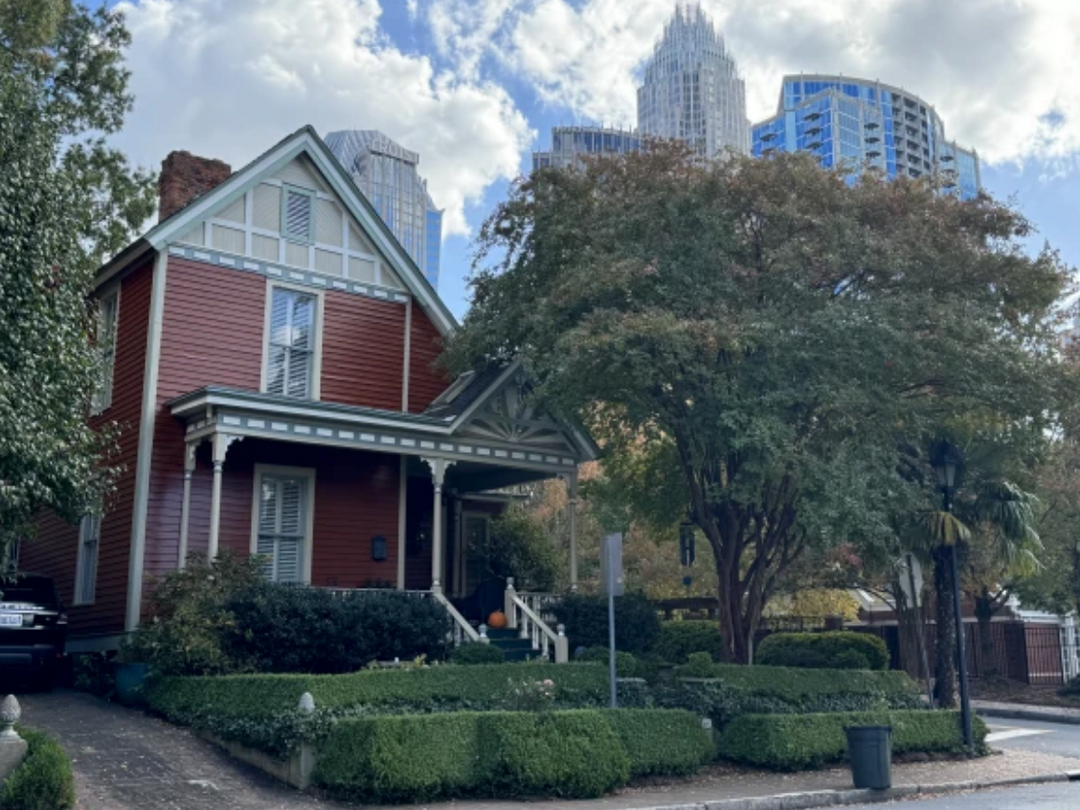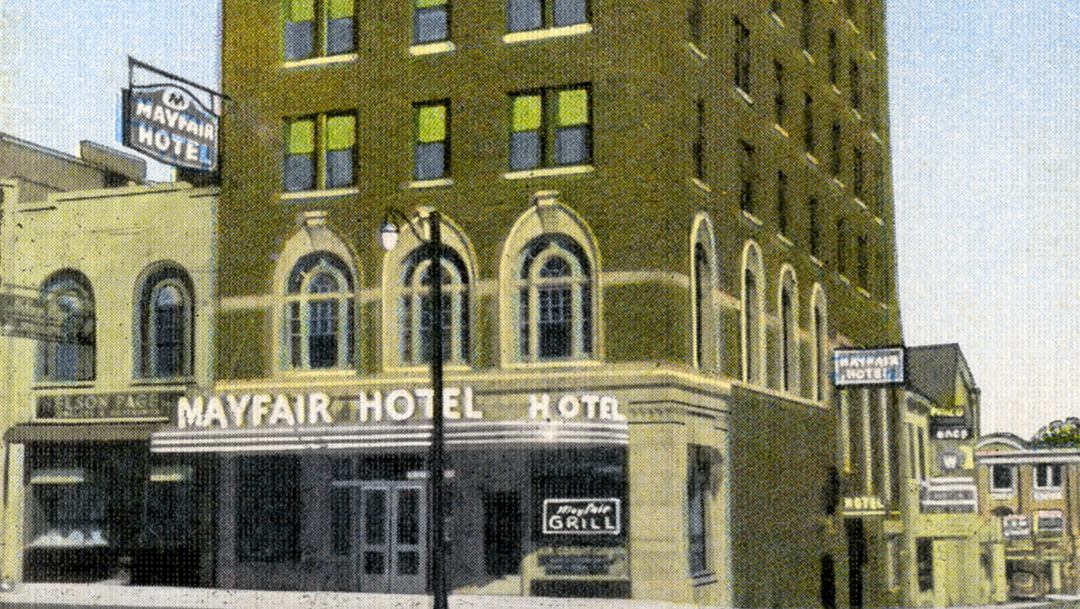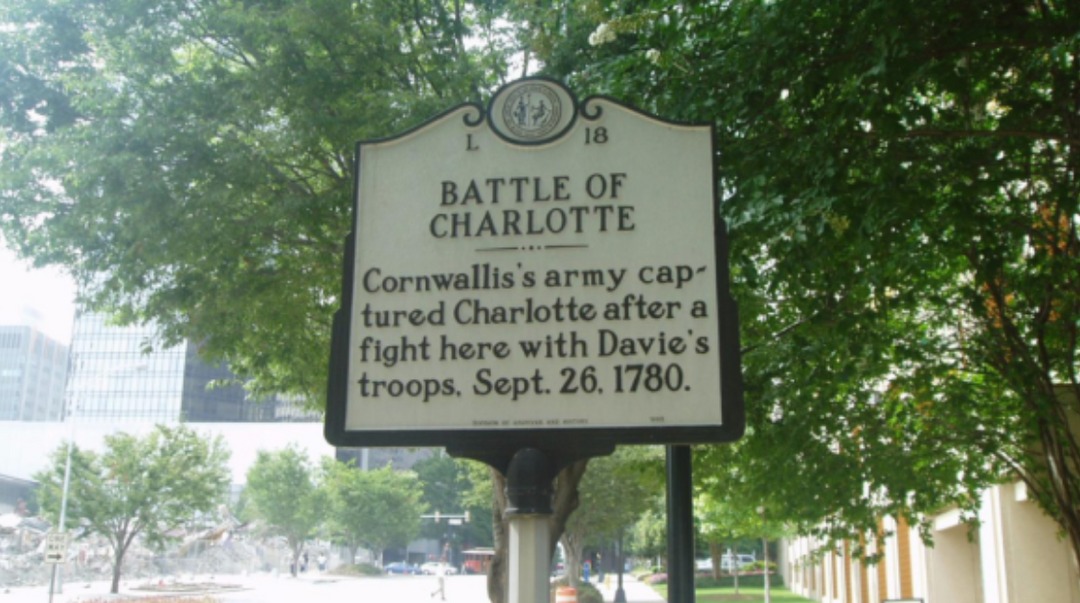Fact Friday 344: Meck Dec Revisited! - Powered by the Charlotte Museum of History
Happy Friday! And Meck Dec Day!
Was one small county in North Carolina the first to declare independence from England in 1775?
The legendary Mecklenburg Declaration of Independence continues to inspire debate among historians and Charlotteans as it celebrates its 247th anniversary. Chief question remains, did it exist? The debate into its existence lies in the fact that there are no surviving copies of the document (that we currently know of). All original copies of the Declaration -- Meck Dec, for short -- were lost in a fire in 1800, thus beginning a centuries-long debate into whether or not the people of Mecklenburg County indeed established an independent government and declared British laws invalid. Supporters of Meck Dec point to a written eyewitness testimony of John McKnitt Alexander, who documented the events of May 19-20, 1775. He wrote of a conference among Mecklenburg County leaders who accounted the hardships faced by residents at the hands of British authorities during the American Revolution, ultimately proclaiming themselves “dissolved” from their “allegiance to King George and the British Nation.”

The “rough notes” of John McKnitt Alexander about the 1775 conference that voted on the Mecklenburg Declaration. They are indeed in rough shape, however they are legible. Note the mark-throughs in the first line and what appears to be the date "1800" crossed out just below the first tear on the right. Courtesy of the Southern Historical Collection, Wilson Library, The University of North Carolina at Chapel Hill.
However, MeckDec skeptics argue that this fragmentary evidence, as well as other eyewitness accounts mentioning the Declaration, were produced decades after the fact and therefore dismissed them of all credibility. Based on the considerable evidence, it is safe to assume that something major took place regarding Mecklenburg County’s government around this time. The adoption of the Mecklenburg Resolves -- a series of documents whose authenticity has been confirmed -- in 1775, declared all British authority in the county to be null and void from that point forward. Was this the so-called “Mecklenburg Declaration” that people remembered twenty to thirty years after the fact? Or, was there another document which declared wholeheartedly Mecklenburg County’s independence from Great Britain an entire year before the Second Continental Congress met at Independence Hall?
What do you think? The mystery lives on!
A Reading of the Mecklenburg Declaration at the Historic Alexander Rock House.
Although there is plenty of room to debate the existence of the Meck Dec, there’s lots of exciting events happening around town to celebrate Charlotte’s role during the American Revolution!
- MeckDec-Themed Day at The Charlotte Museum of History
- May 20th Noon Commemoration in Uptown
- May 20th Bike Ride and OMB Social
And now for some news: this week will be the Museum’s last Fact Friday for the summer. We’ve got exciting plans in the works and we’re eager to buckle down and make the Museum the best it can be. We’re so grateful to Chris and the team at the 704 Shop for inviting us to get involved and letting us share all of the sometimes random history tidbits that fill our heads. They can’t keep us away from writing about history! We’ll be back soon.
In the meantime, I hope you’ll follow the Museum on social media or sign up for our email newsletter. And come see us! The Museum is open Thursday through Saturday and we’ve got more than five amazing exhibits plus the historic homesite to explore. Check it out anytime at charlottemuseum.org.
Thanks and HAGS (that’s “Have A Great Summer” for those of you who remember all that yearbook signing this time of year!!)!
Sources:
The text of this post is adapted from two essays by May 20th Society President Scott Syfert, debating the existence of the MeckDec. You can read those essays here (against) and here (in favor).
You can find more in Scott's book titled "The First American Declaration of Independence?"
To read previous Fact Friday's related to the Meck Dec, click here.
---
About The Charlotte Museum of History
The Charlotte Museum of History exists to save and share the Charlotte region’s history, helping create a better understanding of the past and inspiring dialogue about the future. The museum is the steward of the 1774 Hezekiah Alexander Rock House and homesite, which is listed on the National Register of Historic Places and is the oldest home in Mecklenburg County. Visit charlottemuseum.org and follow the museum on Facebook, Instagram and Twitter. The museum is an independent 501(c)(3) nonprofit organization.
---
Email chris@704shop.com if you have interesting Charlotte facts you’d like to share or just to provide feedback!
“History is not the past, it is the present. We carry our history with us. We are our history.” - James Baldwin





